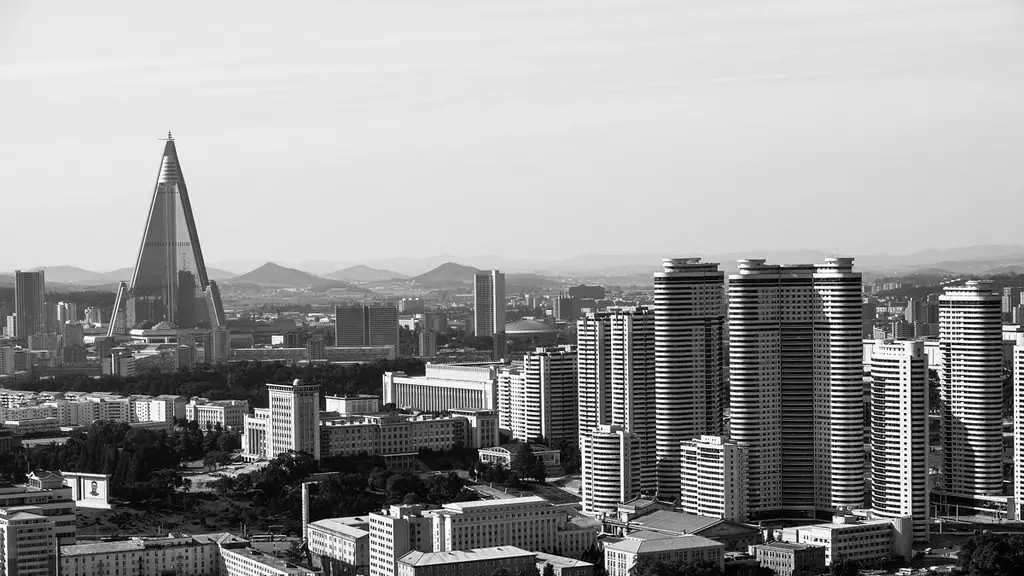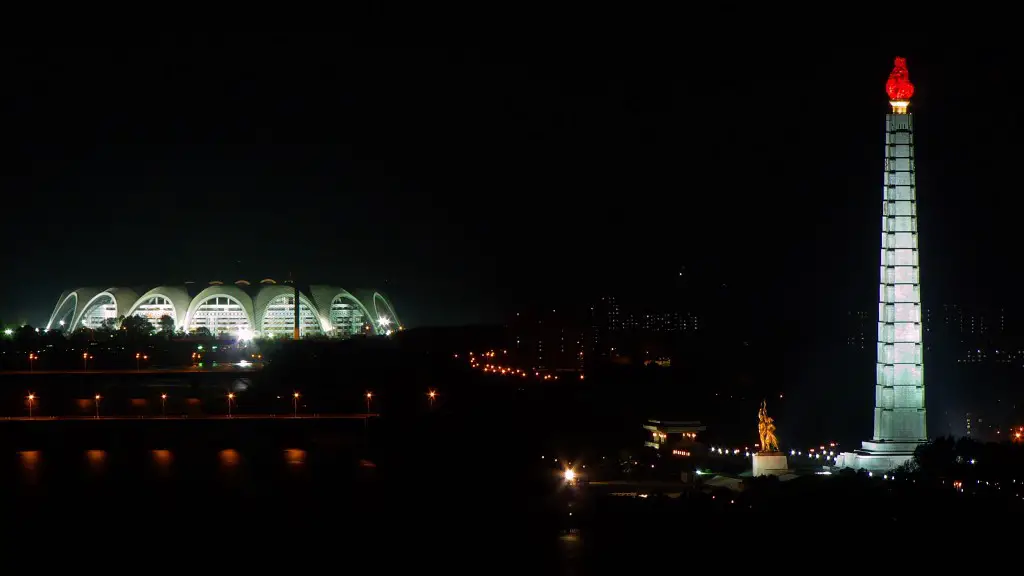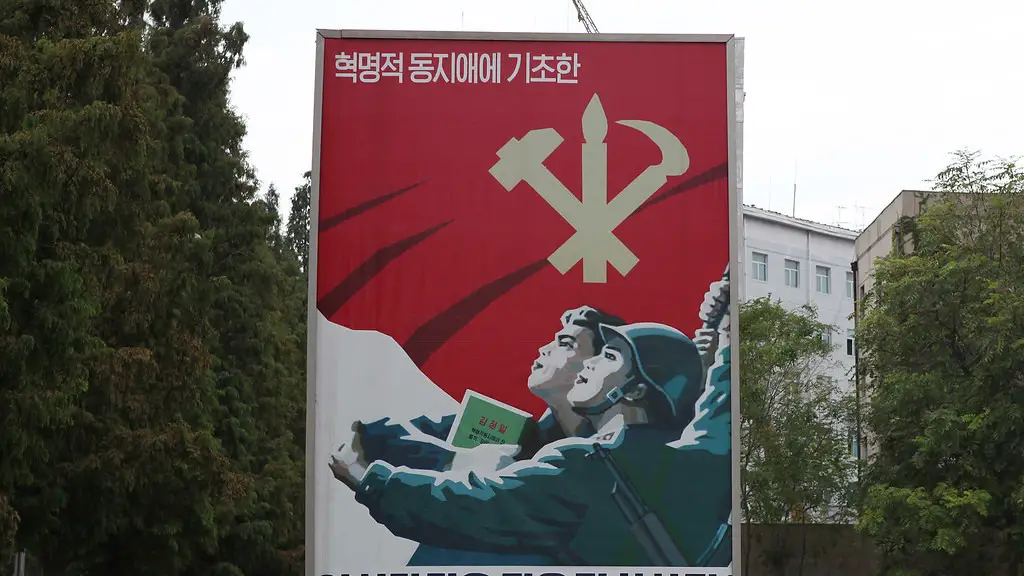Supplying North Korea With Nuclear Technology
North Korea first began its nuclear arms program in the late 1950s. The country sought foreign assistance in obtaining nuclear-related technologies and thus developed a wide network of conspirators and accomplices to help it acquire much-needed components and technology.
North Korea’s pursuit of nuclear weapons started with assistance from the Soviet Union and China. On January 15th, 1989, a North Korean Foreign Ministry official made a statement declaring the NK nuclear ambition. North Korea’s quest for nuclear technology quickly evolved into a full-fledged campaign to build a nuclear bomb, with the aim of deterring both South Korea and the United States with a nuclear strike capability. In 1990, US intelligence discovered that they were producing weapons-grade uranium.
The source of assistance has typically been from China and the former Soviet Union. These two countries have provided the biggest support to the North Korean nuclear weapons program. China has provided assistance in acquiring uranium from the Middle East and opened its borders for North Koreans to traffic their nuclear technologies, components, and delivery vehicles. North Korea is believed to have obtained uranium enrichment technology and its fissile material from Syria with assistance from Pakistan. China and the former Soviet Union have also provided North Korea access to nuclear-related technologies, materials, and equipment, including high-performance computers,sophisticated machine tools, and sophisticated materials.
It’s speculated that North Korea used its ties with the two countries to acquire the components needed to build its nuclear weapons. Additionally, North Korea has sold most of its nuclear material to Syria in exchange for uranium and other raw materials needed for its nuclear weapons program. North Korean agents have also been observed interacting with nuclear suppliers in China, Russia and other nations in the Middle East, Central Asia and beyond, helping to fuel the North Korean nuclear ambitions. From 1993 onwards North Korea has been fairly self-sufficient in terms of nuclear technology, though it still continues to depend on support from foreign countries.
Experts from American and South Korean governments have constantly accused North Korea of writing false documents, harassing shipping officials, and forgery of certificates for international inspections. North Korea has also allegedly used the ocean trade route to smuggle nuclear-related components and materials from the nations mentioned before. Furthermore, North Korea has established relations with black-market dealers, who provided them with nuclear-related raw materials.
North Korea has also managed to keep itself up to speed with the advances in nuclear weapon design and technology. The country has developed close ties with Iran, who has also been accused of illegally supplying them with nuclear-related technology. North Korea has reportedly taken advantage of the lax economic sanctions against Iran to purchase or smuggle the components and materials needed for developing nuclear weapons.
In recent years, North Korea has become increasingly bold and sophisticated in its attempts to obtain the nuclear technology needed to develop an atomic bomb. It has tried numerous methods of acquisition, from bribery, coercion, and threats, to trade and trafficking. North Korea has also sought assistance from black-market dealers and illegal networks, resulting in an international rise of nuclear traffickers, smugglers and proliferators.
North Korea’s Nuclear Ambitions
North Korea’s growing nuclear ambitions have sparked a global anxiety for its safety and the safety of the world’s countries. North Korea’s attempt to develop an atomic bomb has caused much controversy and discussion amongst the global community, particularly in the United Nations. The United States has expressed strong condemnation on North Korea’s nuclear activities, while China and Russia have expressed more moderate stances. Other countries, such as Japan and South Korea, have condemned North Korea and passed several sanctions against it.
Despite the international pressure, North Korea has persisted in pursuing its nuclear ambitions. It has continued to acquire nuclear-related material and technology through a variety of channels, including illegal smuggling. In late 2006, the US government reported that North Korea had obtained the necessary components and materials to create a nuclear bomb. In 2007, the US Department of the Treasury alleged that North Korea had illegally exported ballistic missiles, nuclear technology, and related components to other countries.
In recent years, North Korea’s nuclear ambitions have significantly impacted regional as well as global security. The North Korean government has used the threat of nuclear weapons to extort money from other countries and has been increasingly active in selling its technology and materials to other nations in order to acquire financial gains. The country is moving closer to developing its own atomic bomb, which threatens the regional balance of power and risks undermining global non-proliferation efforts.
The Impact of North Korea’s Nuclear Ambitions
North Korea’s pursuit of nuclear technologies has also presented new challenges in terms of international relations and global peace. For example, the United States has sought to impose international economic sanctions against North Korea in order to persuade the country to give up its nuclear weapons ambitions. The United States has also sought to use diplomatic and economic pressure to convince China to reduce its support of North Korea’s nuclear program. However, these sanctions have been met with resistance from the Chinese government.
North Korea’s nuclear ambitions have also caused tension between the United States and its allies. In particular, Japan and South Korea have expressed concern about the North Korean nuclear program and have called for the United States to take more aggressive action to stop North Korea from obtaining the necessary technology and materials. In addition, North Korea’s nuclear weapons program has put other countries in the region on alert and has boosted Japan’s efforts to develop its own nuclear weapons.
The effects of North Korea’s nuclear ambitions has also created a new threat in the form of nuclear proliferation. North Korean efforts to smuggle nuclear technology and components to other countries has heightened the risk of the spread of nuclear weapons technology and materials. It has also raised concerns about the safety and security of countries within the region and beyond.
Finally, North Korea’s nuclear ambitions have raised questions about the efficacy of global non-proliferation efforts. The lack of progress in convincing North Korea to give up its nuclear weapons program has caused concern among countries around the world. It has undermined the ability of the international community to effectively control the spread of nuclear weapons and materials, and it has raised doubts about the effectiveness of overall nuclear non-proliferation efforts.
International Responses to North Korea’s Nuclear Ambitions
The United Nations has taken a strong stance against North Korea’s nuclear ambitions. In 2006, the UN Security Council unanimously passed a resolution that imposed sanctions on North Korea in response to its nuclear test. This resolution was followed by further sanctions, including the banning of luxury goods, weapons and dual-use items, and travel bans.
The US government has sought to resolve the North Korean nuclear crisis through negotiations and diplomacy. In 2003, the United States and other countries in the six-party talks, including China and Russia, began negotiations with North Korea. Unfortunately, these negotiations have yet to produce any significant progress. The other countries involved in the talks have called for the immediate implementation of North Korea’s denuclearization commitments, which have been repeatedly broken by the North Korean government.
North Korea has remained adamant about its refusal to abandon its nuclear ambitions, and the United States has insisted on an unconditional verifiable denuclearization of North Korea. In response, North Korea has proposed a step-by-step denuclearization plan. However, the United States and its allies have yet to accept this proposal due to concerns about the outcome of the negotiations.
The international community has also taken measures to impose financial penalties and economic sanctions on North Korea in order to prevent it from acquiring and developing nuclear weapons. In 2016, the United Nations Security Council unanimously passed a resolution that sought to further restrict North Korea’s access to funds necessary for its nuclear weapons program. This resolution was followed by a series of financial sanctions, including measures to block the transfer of funds to North Korean individuals and companies linked to the country’s nuclear program.
Conclusion of North Korea’s Nuclear Ambitions
The international community has sought to address North Korea’s nuclear ambitions through a combination of diplomatic, economic and military measures. The United States and its allies have maintained their strong stance against North Korea’s nuclear activities and have sought to pressure the country to abandon its nuclear ambitions. In response, North Korea has continued to acquire nuclear technology and materials, resulting in increased tensions between North Korea and the international community. Although the international community has been able to impose some economic and financial sanctions on North Korea, the country has remained determined to develop a nuclear weapon.




